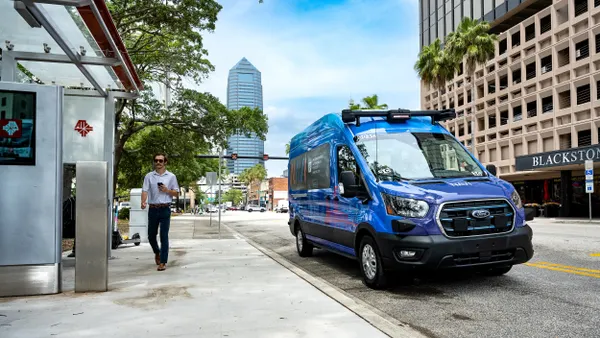Lyft’s announcement Monday that it has acquired bike-share company Motivate is another big indication that ride-hailing apps are looking to move into other areas of mobility.
The Motivate acquisition was reportedly worth $250 million, for a company that operates bike-share contracts in some of the biggest cities in the United States, including Citi Bike in New York City, Capital Bikeshare in Washington, DC, Divvy in Chicago and Ford GoBikes in San Francisco. Both companies hailed it as a “transformative agreement.”
We are thrilled to announce a transformative agreement with @Lyft to advance the future of urban transportation! https://t.co/hI9gMwDLcG
— Motivate (@motivate_co) July 2, 2018
And while Motivate will continue to operate a business that maintains the bikes and manages operations, Lyft has acquired the technology and contracts. The move appears to be setting the stage for Lyft to start its own dockless bike-share and electric bike arm, joining a crowded marketplace that includes startups Bird, ofo, Lime and Spin.
Both companies are confident the merger can help reduce congestion and the reliance of city dwellers on cars. “How we get around cities is changing rapidly, and the combination of Lyft and Motivate will bring tremendous new resources and energy to making sure that bike-share plays a fundamental role in the new urban mobility,” Motivate executive chairman Steve Koch said in a statement.
The shift towards dockless bike-share is part of a wider trend in ride-hailing companies to look beyond offering people rides, and instead have a more broad outlook towards different modes of transportation. Last month, Lyft announced a revamp of its app to include greater integration with public transportation and to improve shared rides, which it wants to account for 50% of all its trips by 2020.
Lyft has also been one of several companies to get into the race to develop autonomous vehicles (AVs), partnering with technology company Magna to build out AV systems and with the GoMentum Station testing facility to test the vehicles in Concord, CA.
Fellow ride-hailing app Uber, meanwhile, has pushed hard on its initiatives around multimodal transportation and recently launched its New Modalities organization, to be led by Rachel Holt, who was the company’s vice president and regional general manager of operations in the United States and Canada. In a statement to TechCrunch, Holt said she was looking forward to helping the company “incubate and build new ways to move around the more than 600 cities we serve.”
Similarly, Uber announced a slew of new collaborations earlier this year designed to make it more than a ride-hailing service and instead be a multimodal transportation agency. That included its acquisition of dockless electric bike-share company Jump, which Uber CEO Dara Khosrowshahi said is part of the company's wider goal to be a leader in moving people around cities in the best way possible.
"We think that increasing bike-share and having e-bikes in particular available on a dockless basis in cities in a responsible way is going to allow more and more people to move around in cities but move around cities in ways that are efficient, that don't cause traffic, that don't cause issues with the environment," Khosrowshahi said at a press conference at the time.
Uber mobility product head Jahan Khanna went even further, saying the company is “doubling down on a strategy where Uber is becoming more than a ride-sharing company," with a view to it being the "predominant point A to point B transportation network in the world." Uber also had an interest in buying Motivate, but CNBC reports it pulled out over concerns with its city contracts and because the company has unionized workers.
And for its part, Google parent company Alphabet has upped its stake in the mobility space, having previously launched its Waymo self-driving cars and led the Sidewalk Labs smart city initiative in Toronto. Earlier this month, The Financial Times reported it invested in dockless bike and scooter company Lime, part of a $300 million round of funding for the company.
Lyft and Motivate face a big test next April in New York City, a major market for Motivate’s Citi Bike, as the service will expand to help cope with the city’s 15-month shutdown of its L subway train line.
By adding around 1,250 new bikes and around 2,500 docks in Manhattan and Williamsburg, local officials said, it will be a key part of a multimodal solution to help people move around the city, with its pedal-assist service offering people a boost as they climb steep hills. “Every mode of transportation, from buses to ferries to carpools, will be used [in the L train shutdown] — and Citi Bike can play an important role,” New York State Sen. Brian Kavanagh said in a statement.
With Lyft now valued at $15.1 billion after taking $600 million in its latest funding round, and with Uber planning to go public in the second half of next year, the next few months will offer considerable unveiling of long-term strategy as these companies vie to become urban dwellers’ transportation app of choice.










